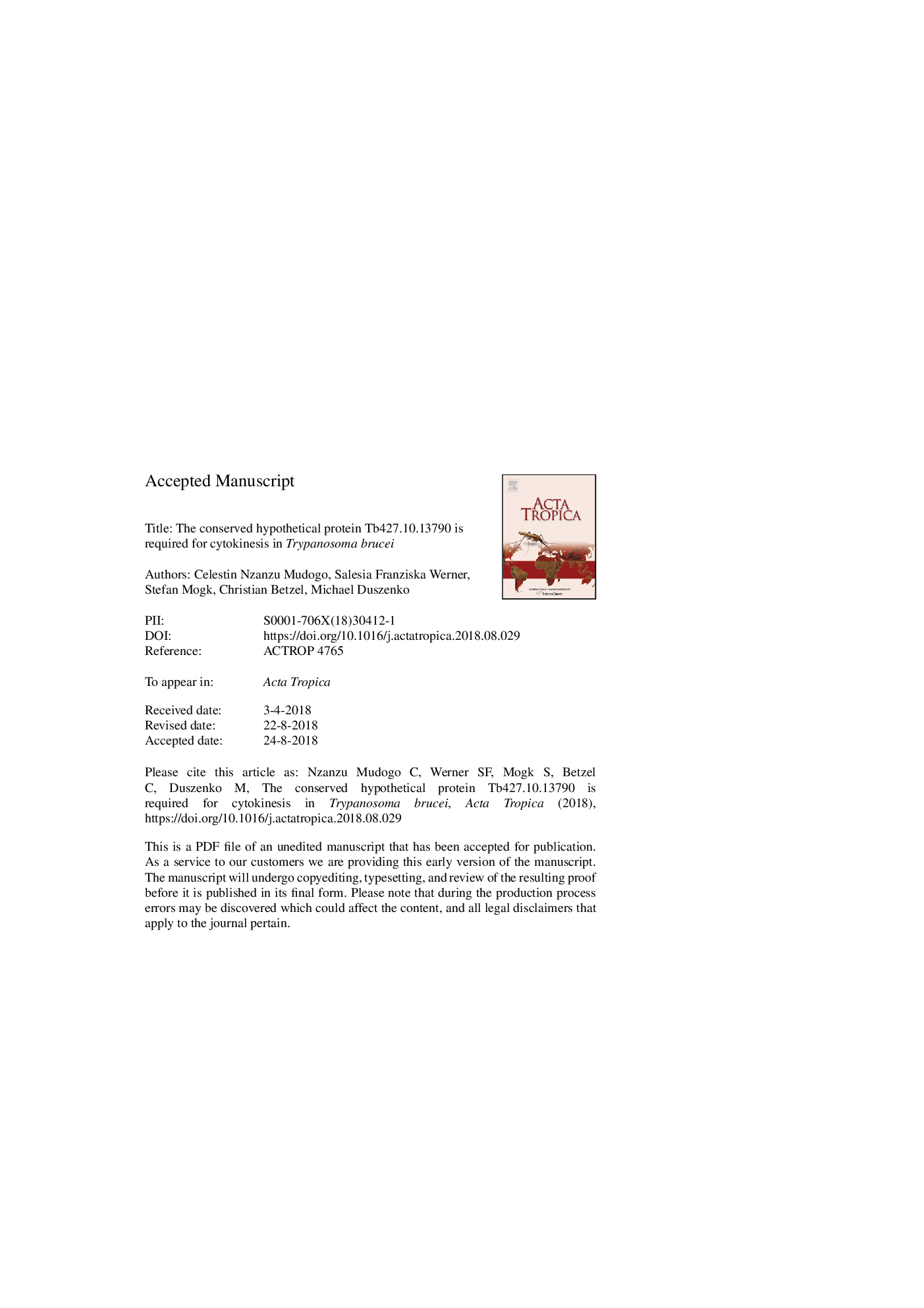| Article ID | Journal | Published Year | Pages | File Type |
|---|---|---|---|---|
| 8957973 | Acta Tropica | 2018 | 18 Pages |
Abstract
Trypanosoma brucei, a flagellated protozoan causing the deadly tropical disease Human African Trypanosomiasis (HAT), affects people in sub-Saharan Africa. HAT therapy relies upon drugs which use is limited by toxicity and rigorous treatment regimes, while development of vaccines remains elusive, due to the effectiveness of the parasite´s antigenic variation. Here, we evaluate a hypothetical protein Tb427.10.13790, as a potential drug target. This protein is conserved among all kinetoplastids, but lacks homologs in all other pro- and eukaryotes. Knockdown of Tb427.10.13790 resulted in appearance of monster cells containing multiple nuclei and multiple flagella, a considerable enlargement of the flagellar pocket and eventually a lethal phenotype. Furthermore, analysis of kinetoplast and nucleus division in the knockdown cell line revealed a partial cell cycle arrest and failure to initiate cytokinesis. Likewise, overexpression of the respective protein fused with enhanced green fluorescent protein was also lethal for T. brucei. In these cells, the labelled protein appeared as a single dot near kinetoplast and flagellar pocket. Our results reveal that Tb427.10.13790 is essential for the parasite´s viability and may be a suitable new anti-trypanosomatid drug target candidate. Furthermore, we suggest that it might be worthwhile to investigate also other of the many so far just annotated trypanosome genes as a considerable number of them to lack human homologs but may be of critical importance for the kinetoplastid parasites.
Keywords
DICFlagellum attachment zonedsRNATrypanosoma bruceiDAPIqRT-PCRSMBeGFPORFRNA interferencedouble-stranded RNARNAiFAZHuman African trypanosomiasisopen reading frameDrug targetquantitative real-time polymerase chain reactionenhanced green fluorescent proteinHypothetical proteinCell cycle progressionHATdifferential interference contrast
Related Topics
Life Sciences
Immunology and Microbiology
Parasitology
Authors
Celestin Nzanzu Mudogo, Salesia Franziska Werner, Stefan Mogk, Christian Betzel, Michael Duszenko,
